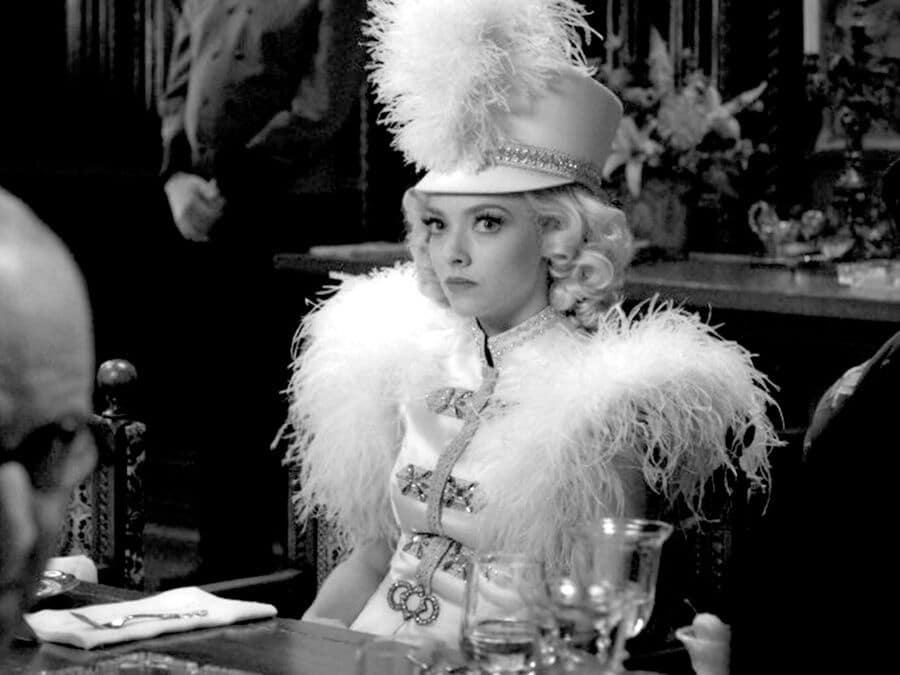I wanted so badly to love “Mank” (Netflix): I’ve always been drawn to tales of the writers who originally congregated at the Algonquin Round Table in 1920s New York and then made the trek out to Hollywood, where writers were paid ridiculous sums to craft often-silly and formulaic screenplays. One of them, Herman Manckiewicz, a witty, cynical alcohol played to the hilt by Gary Oldman, was hired in 1940 by Orson Welles to write the screenplay for what would become “Citizen Kane.” He spent months in the desert with a broken leg and a lot of booze creating the first draft, much of which survived the final script. The film goes back and forth in time, revealing Mank as a popular party guest for his court jester bon mots, his contempt for studio boss Louis B. Mayer (Arliss Howard, excellent), and his sort-of-friendship with both newspaper baron William Randolph Hearst (a spot-on Charles Dance) and his mistress Marion Davies (Amanda Seyfried), both of whom were the models for “Citizen Kane.” As I said, I wanted to love the film, but I wound up only liking parts of it. Shot in black and white, directed by David Fincher, originally written by his father Jack in the 1980s, and overhauled each time it was about to be made, Netflix allowed “Mank” to come to fruition this year, long after Fincher senior’s death. I admired director Fincher’s meticulous artistry, the photography and the performances. But I found the whole thing rather cold, smugly in love with its own snappy, cutting dialogue (“All About Eve” did it better), too long and generally off-putting. I’d be interested in your opinion. Write to me at the address above if you’d like.
“Virgin River” season two (Netflix). Robin Carr is one of the romance genre’s most beloved authors. One of her multi-book series about a small town in Northern California named Virgin River was made into a TV series on Netflix last year. Season two debuted last week and, as I was binge watching it—as I did with season one—I kept asking myself why I was unable to stop doing so. Yes, readers, I watched all 10 45-minute episodes in one sitting. It’s the same with her books: The critic in me sees numerous flaws—backstories repeated too often, characters who are stereotypes, plot devices that are based on secrets that should have been mentioned early on (in which case, of course, there would be no need to go on, so there is that). But somehow, the woman can tell a story, she really can, and the series does the same. Yes, it’s pure escapism and more power to it. What’s it about? New-to-town nurse practitioner Melinda (Alexandra Breckenridge), now sharing office space with aging Doc Mullins (Tim Matheson) ,finds herself attracted to restaurant/bar owner Jack (Martin Henderson), who gives depth to the attractive, conflicted hero). Alas, Jack has gotten his former girlfriend pregnant. That was season one. Season two takes it from there. Oh, and it will be a trilogy, which explains the last scene of the last episode, which gives definition to the term cliff-hanger.
“Luxor” (available to rent or buy on Prime Video) is many things: a gorgeously filmed visit to this Egyptian city, its ruins, ancient holy places and burial structures thousands of years old. It’s also a story about an English aid worker (Hana, hauntingly played by a riveting Andrea Risborough) who returns here, having visited in the past and needing to rest and recover from her time in Afghanistan—a study in depression and PTSD. It’s even a bit of a love story when an old flame shows up and their friendship is rekindled. The pace is studied and deliberate (kudos to writer/director Zeina Durra) and we should get antsy after a while because it’s slow-moving and there’s very little dialogue. But the need keeps building for us to know more and to stick it out to the end. I did and I’m glad I did. You will be, too.

